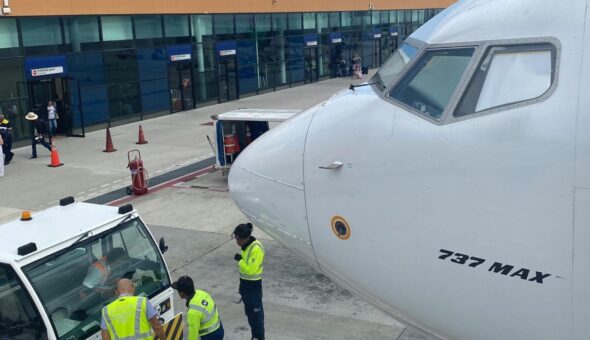Professor Phil Tomlinson, who is deputy Director for the Centre for Governance, Regulation and Industrial Strategy, takes a look at the impact of the pandemic on various economic sectors, as well as the policy responses being considered to cope with the fallout. This was originally published on the CGR&IS blog.
As the UK eases itself out of the COVID-19 lockdown, attention has turned to the economy. Perhaps not surprisingly, UK GDP fell by an unprecedented 20.4% in April alone – now unless there is quick and sustainable recovery, that’s not Recession, but – dare we mention it – it is Depression territory. While this rapid decline can be attributed to the lockdown, it should be noted the UK economy was completely stagnant in the three months coming into the crisis, and this comes on the back of a decade in which we have experienced the slowest economic growth in over 60 years.
In the short-term, social distancing and the ‘new normal’ will have a negative impact upon productivity and output, especially in sectors where close proximity is usually par for the course.
Yet those who think the health and economic crises are separable, should think again.
Indeed, many scientists – including many on SAGE – have raised genuine concerns that the current easing of lockdown measures (to ‘get the economy’ going) risks spiking a second wave. This is because the number of new cases of COVID-19 appear to be flatlining (rather than falling), daily deaths are way above those elsewhere in Europe, while the government’s much vaunted Test and Trace App (to monitor and ‘control’ the virus) is now unlikely to be fully functional until late Autumn.
And, then there is consumer confidence. Recent data from EY consultants shows UK consumers remain extremely nervous about the virus, and returning to the high street and conducting their ‘normal’ recreational activities (such as going to bars/holidays) in the numbers they were before. Indeed, the UK's poor international performance in handling the pandemic – with the highest excess death rate in the world - has left a massive dent in consumer confidence.
Fears over job losses are also hampering demand. As the government’s furlough scheme is being wound down, firms are thinking twice about whether it is worth carrying on. Some firms might be able to survive short term losses, but if they are unable to cover their operating costs such as wages, rent for premises and raw materials, and with the business environment being highly uncertain, then many will close. Unemployment is likely to hit figures not seen since the early 1980s. So, it is a vicious circle, and if a second wave of the virus occurs then the economic impact will be catastrophic.
Sector Vulnerability and Regional Resilience
Some sectors and regions have been more adversely affected more than others. One sector in particular stands out and that is Aerospace. The South West is renowned for its expertise and capabilities in Advanced Engineering, and much of this revolves around Airbus and its operations at Filton. Aerospace is a highly innovative industry, it creates high quality, well-paid jobs and is one of the industries in which the UK is a genuine world leader. However, even before the pandemic, the industry was facing significant challenges, especially with the very real possibility of a no-deal Brexit and supply chain disruption.
Now people aren’t flying either because of quarantine or travel restrictions, and because they are also very fearful of catching the virus on flights. In addition, lockdown has seen an uptake in remote working, and people are beginning to re-think whether they need to fly as much as did – for instance, for business meetings/conferences. This may be the start of a new long-term trend, particularly in light of concerns about Climate Change and carbon emissions.
So, we have seen flights/holidays cancelled, while British Airways have cut 12,000 jobs, and both Virgin and Ryanair each cut 3,000 jobs. Indeed, many airlines – particularly smaller regional airlines - are on the financial brink. This impacts upon the wider supply chain, with Airbus, itself, having placed 2,200 of its UK employees on furlough.
Other manufacturing sectors have also been adversely affected. In automotive, around a third of workers are on the furlough scheme and there are concerns that upto 1 in 6 jobs might be lost. The difficulties in the hospitality sector are also well documented, where around 80% of workers are on furlough.
Yet some sectors are more resilient. In the South West, we have HPC at Hinkley Point – which is effectively a state backed project. While ‘lockdown’ may have seen some temporary disruption to its construction, the project will continue to provide important employment opportunities in the coming months and years. This will act as a partial buffer to the economic crisis.
Also, in the South West, some of the region’s wider strengths are in healthcare provision and medical supplies. Given, the recent issues about sourcing PPE, then there is likely to be a long conversation in the UK about re-shoring some of our medical supplies. And that maybe a great opportunity for firms in the South West.
Longer term, we can also look towards the new Institute for Automotive Propulsion Systems facility on the Bristol and Bath Science Park as a big investment for the region, and given the our expertise in automotive propulsion systems and the region’s advanced engineering capability, there may be opportunities around developing low-carbon technologies particularly for electric vehicles.
National and Regional Policy Responses
Across the world, governments have introduced emergency measures to mitigate the economic impact of COVID-19. In the UK, the main measures have been the furlough scheme that has subsidized the wages of around 9.1 million UK workers, and government loan schemes for business. Further fiscal support measures are expected in a mini July budget.
In addition, there has been talk of Project Birch, where the government might provide direct subsidies or even take financial stakes in struggling firms. Other countries have done similar. In some ways this has echoes of old-style industrial policy, perhaps reminiscent Tony Benn’s much derided National Enterprise Board in the 1970s. Yet that project did have some successes – most notably the rescue of British Aerospace and Rolls Royce, that became successful commercial companies.
Given the current situation, there is certainly merit in the state providing temporary support to companies, and possibly taking an equity stake to protect taxpayer interests. And it is something we did with the banks during the 2008 Financial crisis. One caution is the UK does not have much recent experience of this type of industrial intervention, or the appropriate institutional set up to decide on which firms should receive subsidies. This is important because the state may end up supporting firms that were failing or would have failed anyway irrespective of the pandemic. This may give rise to the old accusations of government ‘picking winners’.
There have been calls for central government to prioritise and bring forward ‘shovel ready’ infrastructure projects to promote green growth. This is echoed in a recent paper by Policy Exchange with interesting proposals to increase Electric vehicle-charging infrastructure investment, enhance Gigabit-capable broadband and promote R&D investments in hydrogen technologies. Many of these projects can be devolved to local authorities.
Indeed, much of the on the ground response to the pandemic has been managed at the regional level. But there are many challenges. Mayors are warning that some of UK’s biggest cities risk going bankrupt due to COVID-19. Indeed, locally, BANES estimate a £42m shortfall in commercial revenue from lost Business Rates, Council tax and tourist income. This comes on top of a decade in which local authorities have had to cope with real term reductions of 49.1% in Local Government funding.
Nevertheless, the West of England Combined Authority have – like other regions - established a Regional Taskforce to revive the regional economy. Much of the initial focus revolves around skills and in particular addressing concerns about vulnerable groups, and those missing out on schooling, especially in deprived areas. Digital teaching provision and connectivity is ‘patchy’. There are also big concerns about school and college leavers, and university graduates, and a possible increase in the so-called NEETS (Not in Education, Employment, or Training).
Looking forward, the implementation of the local industrial strategies is going to be critical for regional revival. These will involve policies to support more regionally focused R&D, preparing firms for possible re-shoring of some supply chains and dealing with local skills strategies. The emphasis will be upon looking for new opportunities by building upon existing regional capabilities and specialisms. That means policymakers working with local businesses to identify the best opportunities projects to support, and with employers to co-develop curricula and training tailored to local demands. This is often the best way of generating regional growth.
Finally, we are likely to see Universities playing a much bigger role in our regions. Locally, we saw during the pandemic, the University of Bath step up in manufacturing PPE for the Royal United Hospital and provide accommodation for hospital staff. However, there is a bigger conversation going on about the wider roles of universities as key anchors in regions, especially in terms of driving innovation and acting as a catalyst for promoting more inclusive regional growth.
Photo by Dmitrii Vaccinium on Unsplash
Respond



